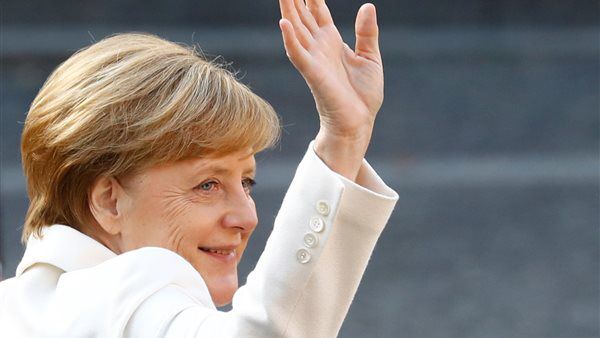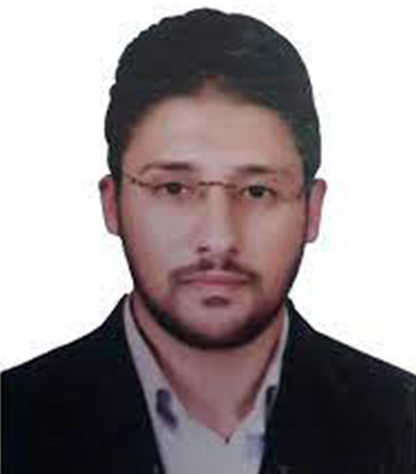German foreign policy in the Middle East during the Merkel era was predicated primarily on its national interests, which makes a German disengagement from the region unlikely. The various crises in the region since 2011 have had a clear impact on Europe, and Germany, particularly the waves of refugees out of the region and the threat of terrorist attacks from ISIS. With a new government coming into power in Berlin after the Socialist Democratic party won the elections, this raises questions regarding the future orientation of German policy towards the Middle East.
The Outgoing Chancellor, Angela Merkel, followed a policy of deep involvement in the Middle East and its ongoing crises. This was in line with the declaration by the then German President Joachim Gauck at the Munich Security Conference in 2014, that Germany should play a more proactive role in line with its economic, military, and political power. He argued that Germany must participate more on the international stage, making contributions to resolving international crises rather than a remaining a spectator.
German engagement during this period was focused on a number of issues, with Germany’s economic interests in the region assuming particular importance. Berlin has also focused on reducing threats from the region, including terrorism and influx of refugees. It was keen to demonstrate the independence of its policies from US actions in the region, which wad illustrated by its opposition to US withdrawal from the nuclear agreement with Iran under the Trump Administration.
Limited Changes Expected
While the different political orientations of the political parties seeking to form the new government in Germany may bring changes to Germany’s foreign policy, this is unlikely to seriously impact the policy towards the Middle East, for a number of considerations, including:
- Maintaining mediating role: It is unlikely Germany will step back from its mediation role in view of the negative impacts of Middle East conflicts on Europe. For example, Germany has sought to play a role in ending the Libyan conflict, hosting the Berlin Conference on the 19th of January 2020, that aimed to broker a ceasefire and usher in a peace agreement. It has since continued its involvement in this issue and is likely to continue to do so. In a meeting this October with Libyan Head of the Presidential Council Mohamed El Menfi, Merkel affirmed Germany’s commitment to support Libya even after the change in government. She declared that Libya would remain a priority for Germany, hence there will be continuity.
- Important economic interests: German economic interests in the Middle East remain significant, and therefore its interest based foreign policy towards the region is unlikely to change after Merkel’s departure. The region remains an important market for German weaponry, the German economic minister declared on the 3rd of January 2021 that a total of 1.16 billion euros worth of weapons was exported to the Middle East during 2020.
Oil also plays a major role in Germany’s foreign policy, hence its mediator role in the conflicts such as Libya aims, in part, to achieve domestic stability in order to allow oil production at normal levels, thereby stabilizing oil prices globally. German companies also seek to profit from opportunities, in reconstruction or development of strategic sectors. Germany’s ambassador to Libya, Michael Ohnmacht, on meeting with the Chairman of the Board of Libya’s National Oil Corporation Mustafa Sanalla , September 29th announced that German oil and energy companies wish to invest in Libya, especially in the oil sector.
- Cooperation with France: Germany and France have developed formulas through which they can cooperate in addressing Middle East issues, and this cooperation is likely to continue despite their differences regarding some regional issues. For example, the two countries disagree on the stance towards Hezbollah, which Germany has designated both its political and armed wings as a terrorist group, and therefore has banned all its activities and support networks in Germany. France, on the other hand, has only designated Hezbollah’s armed wing as terrorist. This stance is related to France’s role in Lebanon, where it deals with Hezbollah as an important political actor, which must be engaged. France therefore perceives that classifying the political wing of Hezbollah as a terrorist group would have a negative impact on the situation in Lebanon and France’s role there.
Despite these differences, Germany is not likely to step back to a significant degree from efforts to alleviate the crisis in Lebanon. For example, Germany announced, on the 9th of August 2020, following the port explosion in Beirut, that it would be sending additional aid worth 10 million euros to Lebanon.
- The persistent threat of terrorism: Terrorist threats from the Middle East will continue to be an important concern to German foreign policy in the post Merkel Era. Despite the losses terrorist groups have sustained in the past few years, they continue to pose a significant threat. ISIS is still capable of conducting attacks in both Syria and Iraq, and “Wilayat Khorasan”, which is affiliated to it, has been active since the Taliban’s takeover of Afghanistan. It has positioned itself as the true defender of Islam, in opposition to the Taliban which came to power through a deal with the West.
- Containing Iran’s nuclear threat: it is not likely that Germany’s interest in the Iranian nuclear program would abate after Merkel, and its efforts to reach a new agreement with Tehran are expected to continue. Germany views this agreement as linked to German and European interests, adopting the view that a deal motivate Tehran to abstain from threatening European security, and would help to stabilize the Gulf region and thus maintain energy supplies from there. Moreover, Germany thinks this agreement could represent a first step towards resolving conflicts in the Middle East, thus reducing the flows of refugees into Europe.
The nuclear issue also provides Germany with an opportunity to distinguish itself from US policies. Germany does not think the maximum pressure policy the US has adopted vis-à-vis Tehran has succeeded, and therefore considers negotiation, diplomacy, and economic incentives could be better tools to achieve the same goals that the US is seeking, which is to prevent Iran from obtaining nuclear weapons.
- Managing relations with Turkey: despite the tensions that have sporadically sprung up between Turkey and Germany, there is still a great deal of room for pragmatic coordination between them. Angela Merkel has viewed Turkey as a strategic partner which must be engaged to solve many issues that are important to Europe. Despite recurring problems, Merkel sought to base relations with Turkey on mutual cooperation, in particular on security and economic issues, as well the importance of cooperation regarding refugees. Berlin has therefore tried to tone down its public criticism of Turkey’s policies in the Middle East.
None of these considerations are likely to change in the near future, as a détente with Turkey remains important to German interests. Moreover, Turkey’s diaspora in Germany can affect its policy towards Turkey, and place limits on its ability to escalate tensions or reduce ties. It is worth noting that by some estimates, there are over three million Turks living in Germany.
- The Refugee Crisis: it is unlikely that the German position regarding refugees will radically change, given that Merkel’s policy survived despite repeated domestic criticism, with various political forces blamed her “open borders’ policy for the large influx of refugees. At the most, more procedural measures regarding the status and management of refugees may be introduced.
The projected continuation of Merkel’s refugee policy is supported by the refugee-friendly stances of the political parties that now dominate the German legislature. For example, The SDU supports dual nationality for German citizens, and a more comprehensive approach towards re-uniting refugees with their families. The SDU supports allowing siblings to come to Germany to be re-united with unaccompanied refugee minors.
Moreover, Germans of a refugee background played a more prominent role in Germany’s last election, which might encourage a less hostile stance towards the refugee issue. German members of parliament that were of immigrant origins number 83 in the current parliament, up from 58 in the previous one.
In sum, all these considerations suggest that Merkel’s departure from the German political scene is unlikely to directly impact German foreign policy orientation towards major issues in the Middle East.


